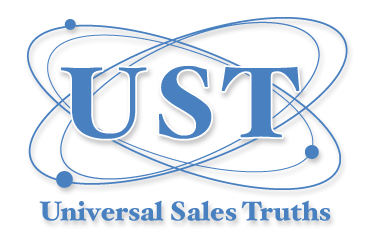Since time is our most valuable resource, it is imperative that we uncover potential roadblocks to our sales campaigns sooner rather than later. The last thing we want to do is spend six months working on a transaction that we had no chance of winning. A good friend I worked with in the ’80s related a story that we can all learn from.
Pat was a national account manager with Memorex/Telex. He was working a very large 3270 display transaction at Xerox Corporation in Rochester, New York. He had been working this opportunity for quite a long time and was well-positioned to win the deal. Pat had a large installed base of Memorex/Telex products as well as strong business relationships. Various levels of management had been brought in to establish the commitment Memorex/Telex had to Xerox. The entire account team had been focusing on IBM as the primary competitor. All sales materials, discussions, and proposals were directed at beating IBM. The entire account team was confident the deal would be awarded to Memorex/Telex.
Then, to their surprise, Xerox awarded the deal to AT&T. The Memorex/Telex team was completely caught off-guard; after all, AT&T was not considered a formidable competitor. They were fairly new in the industry and did not have an established track record. Additionally, they did not have many of the features and benefits the Memorex/Telex product offered. So how could Xerox select AT&T? That was the question the sales team was asking themselves.
After a debriefing, the real reason for awarding the deal to AT&T was uncovered. It seemed AT&T was Xerox’s second-largest customer. In other words, Xerox sold thousands of copiers to AT&T.
Give credit to the AT&T sales rep — he most likely used Xerox copiers in his office and did a bit of research to find out just how much money AT&T spent on its copiers. Then he orchestrated a phone call between some influential executives to leverage this ongoing business relationship.
I’m sure the message came down loud and clear to the individual making the 3270 decision. It was probably something like this: “Explain to me why the AT&T 3270 display will not suit our technical needs. If you can’t give me a compelling reason, then you need to purchase from AT&T.”
At the end of the day it simply made good business sense. As Pat said to me, “It would have been nice to know this fact during the proposal process.” He then could have asked his primary technical contact if there was any chance of winning the deal. Who knows what would have happened? But one thing is for sure: Xerox would not have been on the sales forecast at an 80 percent close. Additionally, if there had been a particular critical feature Memorex/Telex had that AT&T didn’t, it might have made a difference. Unlikely, but having this knowledge would have certainly set up more realistic expectations regarding the outcome.
The fact of the matter is, in certain sales campaigns, there will be circumstances that will significantly reduce our chances of winning the business. In fact, in some cases our chances of a win will be zero. These may be political, relational or maybe even illogical.
In any event, it is our responsibility as professional sales execs to flush these out as early as possible to avoid wasting our valuable time.
In addition to wasting our time, we look foolish to sales management by having transactions on our forecast that we never had a chance of winning.
So the lesson is clear — ask very specific qualifying questions early in your sales campaign. The facts might be hard to deal with, but we are much better off walking away from a deal sooner rather than later if the end result is the same. And also remember: Sometimes the person you think is the decision-maker is getting marching orders from above. So the fact of the matter is, he might not have any choice!
Our time is valuable! Never forget that.
